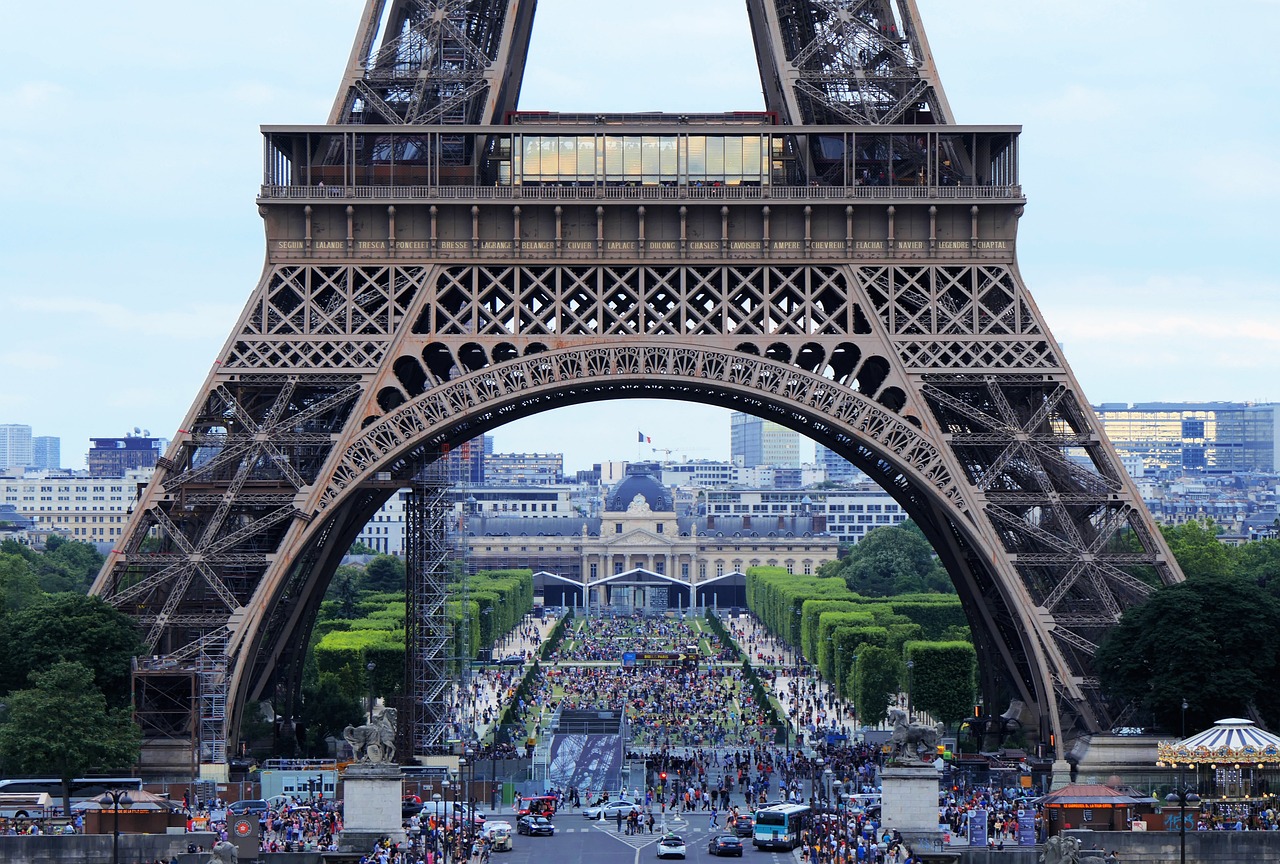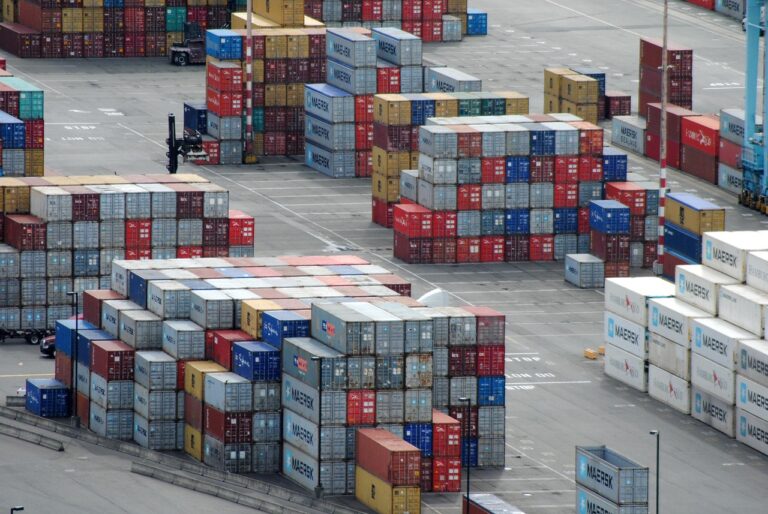
 By Vincent Delbos-Klein*
By Vincent Delbos-Klein*
Paris: On Saturday, June 29, 2024, at the La Clef cinema in Paris, which has just reopened after several years of social struggle, the audience warmly applauded Indian director Payal Kapadia, who came to present her film “A Night of Knowing Nothing“. This documentary, dedicated to the repressed student youth, has received several prestigious awards worldwide and highlights the fragility of social and democratic institutions in the face of the rise of far-right politics. The film focuses on love letters written by a character attending Jawaharlal Nehru University in Delhi.
Mentioning a film shot so far from Paris may seem surprising at the beginning of an article dedicated to the French legislative elections, but the choice of programming by La Clef cinema is not accidental. It crystallizes a global context of the rise of the far-right and more specifically the fears shared by a large part of the French population, in a context of legislative elections where the threat of the far-right party “Rassemblement National” is particularly acute. The director concludes her introductory speech in solidarity, saying: “Good luck for tomorrow.” However, unfortunately for those who reject the far-right, luck will not be enough to contain the “navy blue” wave the day after.
A multifactorial context

The result of the first round of the legislative elections on June 30, 2024, shows that nearly 33% of the votes went to far-right parties, including the “Rassemblement National”, which inherited Jean-Marie Le Pen’s “Front National”, capitalizing nearly 29%. From 289 seats out of a total of 577, a political camp is considered to have an absolute majority, implying the appointment of a prime minister from that party. In the absence of a clear majority, there is a risk of a Constitutional deadlock, unprecedented in the history of the French Fifth Republic, which extends from 1958 to the present day. The breakthrough of the far-right in the legislative elections and the prospect of a far-right prime minister in the person of its representative Jordan Bardella is a shock for many commentators. However, this news is not exactly a surprise and we will see why.
Minorities and scapegoats, a human constant?
Looking as far back as possible in documented history, it seems that the propensity of our societies to define scapegoats, particularly among minority populations, is a human constant. In Europe, the first occurrences of anti-Semitism date back to antiquity and have continued cyclically for 2000 years. It is interesting to note that the categories of population targeted by these stigmatization effects evolve according to periods and societies. Thus, the near disappearance of Jewish populations in certain European countries during the Middle Ages gave rise to new forms of oppression as compensative effects, this time directed against women, leading to the infamous witch hunts. Minority populations represent a wide range depending on the societies in which they are situated: women, LGBT people, Jewish, Muslim, and Roma communities, migrant populations, populations of African and South Asian origin in France, populations of Indian or Pakistani origin in England, the list is not exhaustive.
Xenophobic policies in France and their distant origins
This characteristic seems to have accelerated with the rise of industrial societies. One of the major factors is the rise of colonization, which organized on a large scale the domination, subordination, and sometimes the deportation of entire populations in contexts ranging from the model of a subsidiary citizen to that of slavery. These situations are directly linked to the rise of early capitalism, a powerful political lever that ensured the domination and rapid expansion of European economies and their dominance over the rest of the world. To justify the annexation of resources and the subordination of foreign populations, political and economic powers relied on a racial ideology, a pseudo-scientific fiction that divided human beings into hierarchical categories. The origin of the concept of race is complex. It dates back to the Middle Ages when, in the context of the Inquisition, the Spanish clerical power sought to distinguish Christians from Jewish populations based on the supposed criterion of “purity of blood.” Even today, the preconceptions stemming from the concepts of race influence all continents.
The colonial opposition between Jews and Arabs
The context of war and genocide recognized by the International Criminal Court following the events of October 7, 2023, in Gaza by the Israeli army generates strong tensions in France. To understand them, one must again look at a colonial history that is seldom told in France. A well-known constant of colonial empires to ensure their domination over colonized countries is to provoke or exploit dissensions, then maintain them to divide the populations. This policy was employed by England with political consequences that still persist today, as is well known, in the Indian and Pakistani territories, but also Palestine.
France is no exception to the rule, with a constant attempt since the 18th century to destroy Islamic culture, particularly in Algeria. The famous photographs of artist and former soldier Marc Garanger testify to the French authorities’ intent to forcibly remove the veils from Muslim women during the sinister “unveiling ceremonies”. This strategy of division thus concerns the relations between men and women, but also those between communities. In 1870, the so-called “Crémieux Decree” declared the Jewish populations of Algeria to be French citizens. Some families had been living in Algeria for centuries in relatively peaceful conditions. This colonial distinction tore apart Algerian society and created a wound from which the population would never fully recover. It amounted to both hierarchizing the populations while intensifying the process of inferiorization of Arab populations.
The holocaust and decolonization
The distinction between Jews and Arabs made by the colonial power persisted into the 20th century. The shock of the Holocaust in the world favoured the creation of the state of Israel on Palestinian territory formerly attached to the Ottoman Empire, while in Europe the shame from the genocidal crime fostered the hope of seeing anti-Semitism disappear, at least until 1969 with the Orléans Rumor, the first massive manifestation of anti-Semitism in France since World War II.
Simultaneously, decolonization went hand in hand with the reconstruction of the country, which relied on many workers coming from decolonized or decolonizing countries. However, once again, the subordinate situations stemming from the organization of colonial empires continued. Even when they attained equal citizenship status on paper, former colonized peoples were still marginalized and socially determined by the effects of racial assignments. Access to work, education, justice, and even health, everything is different. Thus, even after several generations, the social effect of racial theories persists, although they are no longer recognized by science.
French Universalism
A characteristic often overlooked of French society is its universalist ideology. Often linked to the Enlightenment era and the French Revolution, this egalitarian ideal was largely used as an argument to “educate” supposedly “inferior” civilizations (as demonstrated by a notorious speech by politician Jules Ferry, who was otherwise a great promoter of education for all, with his name adorning many schools in France ). Thus, French universalism has the paradox of proclaiming an egalitarian ideal while imposing the superiority of one regime of ideas over the rest of the world. This highly normative system contrasts with the Anglo-Saxon “melting pot” organization. Its legacy in contemporary times has a doubly negative impact by imposing a normative discourse on minorities and by making invisible the social and structural dimension of racism on the grounds that “race” does not exist. The word has moreover been erased from the constitution quite recently. It is interesting to note that the term “colour-blindness” is used in English in France, for lack of being widely recognized itself. This deeply rooted racism largely ignored brings an extremely dangerous context.
The war between Israel and Gaza, the Palestinian genocide and its relays in France
The context of the war between Israel and Gaza, marked by the Palestinian genocide (characterized by the International Court of Justice ), thus reopens deep wounds and divides French society. The counterintuitive but crucial alliance between the Israeli far-right and the French far-right creates an equally counterintuitive phenomenon: the “Rassemblement National” (RN), the main far-right party and historic architect of anti-Semitism in France, begins to support the policy of Israeli Prime Minister Benjamin Netanyahu and denounce anti-Semitism in the media. This strategy allows the party to uphold its positions against Muslim minorities in France by relying on the context of the Gaza war and a broad consensus relayed by the media space. This instrumentalization of anti-Semitism, which they attribute to the French left in numerous interviews, completes a long process of the party’s de-demonization while simultaneously weakening the political left as an adversary.
As we have seen, anti-Semitism is an ancient phenomenon that mixes the religious history of the West with a certain recurrence of stigmatizing minority populations. The enforced assignment by Christian powers of Jewish populations to money and usury trades earned the community the reputation of being associated with the rise of capitalism and power. This reputation is a powerful driver for the Western anti-Semitic imagination to this day. It cuts across society, without party distinction. It also affects the left, the historical adversary of capitalism, whose members can sometimes still express ambiguous statements today that may be interpreted as anti-Semitic. However, these do not compare to the violence of the remarks observed on the far-right against minorities. Numerous judicial condemnations of the far-right, such as those of former leader Jean-Marie Le Pen, compared to the absence of condemnations on the left, attest to this.
Despite this criterion, which brings some objectivity to the issue, the context of the Gaza war has formed a consensus against supporters of the Palestinian people. In countless anti-Left television broadcasts (though criticized by institutions supposed to ensure relative media neutrality), many commentators have deliberately created confusion by distorting statements or repeatedly using out-of-context phrases in misleading video montages to associate criticism of the Israeli government with anti-Semitism. Shortly before its dissolution, a famous Left-wing comedian on a public radio station was suspended for mocking the Israeli Prime Minister, whom he called “a Nazi without a foreskin.” Although charges of public insult with anti-Semitic overtones were dropped and he received widespread political support up to the National Assembly itself, the matter ended with his dismissal. This story is a good example of how a consensus is formed against leftist organizations or personalities to maintain a system at the end of its course, even if it means instrumentalizing the argument of xenophobia, which the French left historically fights against.
A deep and long-standing political crisis
Thus, the current political crisis must also be analyzed as a political crisis to be understood. Economists know well: that in the context of declining profit rates that determine the capitalist system, economic crises are not accidents. On the contrary, they are at the very heart of its organization. The capitalist system renews itself through a permanent cycle of creation-destruction that passes through crisis or war.
A precedent: The 1929 crisis and its consequences
There is a precedent with the American economic crisis of 1929, which had significant consequences on global geopolitics, through the advent of Nazism in Europe, fascism in Italy, and imperialism in Japan, with the consequences everyone knows. The American subprime crisis of 2007-2008 also had significant consequences on the world economy by imposing stringent austerity programmes on European countries. These drastic reductions in public spending on education, culture, and health significantly impacted the well-being of populations.
The rise of neoliberalism and financial capitalism
The trend towards economic austerity is not unprecedented, however. In France, the change dates back to 1983 and is experienced by the population as an unforgivable betrayal. Two years earlier, in 1981, President François Mitterrand was elected. For the first time under the Fifth Republic, the country was led by a socialist president, linked to a socialist and communist government. For many citizens, this election was “the great evening,” as the French expression goes. However, in the era of Reagan and Thatcher, the dream quickly turned into a nightmare. In the context of a globalized and competitive economy, financial capitalism has the power to impose its laws, including austerity policies, in all OECD countries. The shift from socialist policy to neoliberal policy is perceived by the French population as a betrayal. Once again, a scapegoat and a bogeyman are needed. Many years later, political representatives from both the left and right recognized having used the “Front National” as this bogeyman to get elected while pursuing economic programmes contrary to the population’s interests. The turn of 1983 thus marks a political upheaval that still leaves traces 40 years later. For many French people, it serves as a permanent reminder that the perceived traditional political system does not serve their interests.
The horizontal concentration of the media
On all continents, the capital concentration phenomena that began in the 1980s have significantly weakened the independence of the media and journalism. The oligarchic organization (what Pierre Bourdieu describes as permanent powers) resulting from these economic and political concentration phenomena translates into the control of billionaire personalities over large media groups. This influence of interests associated with high capital concentrations in a field often called “the fourth power” necessarily questions the state of information and democracy in France, as elsewhere. This is why we can talk about a structural phenomenon that applies on a large scale in many countries. Is the political power of a billionaire citizen comparable to that of a citizen possessing sometimes a millionth of their resources? No, of course not. In France, billionaire Vincent Bolloré exerts considerable influence over the French media landscape. This man, who became wealthy in a post-colonial context and still has many interests in Africa, has diversified his activities by buying numerous media outlets. His methods are recurrent: buy a media outlet, appoint far-right personalities to head it, and replace the teams that, following this appointment which outrages them, leave entirely on their own. Thus, the slow but steady far-right shift of French media significantly influences public opinion regarding the perception of minority populations in France, starting with Muslim populations. It directly influences the rise of the far-right, once despised and now perceived as “respectable.”
The RN: A party founded by a former Waffen SS
It must be noted that the Rassemblement National party has a long history. Previously named the Front National, it was founded by former Waffen SS members, neo-Nazi sympathizers, and nostalgists of French Algeria under colonization. Jean-Marie Le Pen, at the time, was often convicted for inciting discrimination, hatred, or racial violence, advocating war crimes, denying crimes against humanity, and making homophobic remarks. These provocations targeted Jewish, Muslim, and LGBT people alike. At the time, commentators observed that the Front National was more about influencing the French political landscape than genuinely seeking power. However, this strategy began to shift in the 2000s.
The shock of April 21, 2002
On April 21, 2002, France was in shock. Instead of the usual duel between the main right-wing party (RPR) and the main left-wing party (PS), the second-round result was a face-off between the right and the extreme right. A million people took to the streets, protesting what they perceived as the return of Nazism to France. In the second round, incumbent President Jacques Chirac won overwhelmingly with nearly 82% of the vote against Jean-Marie Le Pen’s 17.5%. Some commentators called it an accident, while others feared it marked the start of a new era. They were right. Supported by the aforementioned media outlets, which endlessly extrapolate on security issues and the views of media moguls like Vincent Bolloré, the Rassemblement National embarked on a long process of “de-demonization” under the leadership of Marine Le Pen, Jean-Marie Le Pen’s daughter. These efforts gradually made the party more acceptable to the general public without significantly changing its political stance against minorities. It was purely a media effect, but one with a significant impact.
Terrorism as a political project
In addition to forms of terrorism directly linked to far-right parties in Europe, there are also common interests between Islamic terrorism and Western far-right parties: one marginalizes Muslim populations in Western countries and exacerbates a sense of social injustice, while the other exploits this vulnerability to attempt (in vain) to rally these populations to their cause. Social inequalities create anomie, societal spaces where shared values, laws, and rules seem to disappear. These situations, compounded by a traumatic history, logically lead to deviant behaviours. Waves of attacks in France, especially in 2015, exacerbate this dual phenomenon of anti-Muslim sentiment and racist pressure on minorities. In sum, though it may seem counterintuitive, terrorism strengthens the existing power structures more than it weakens them.
A strong distrust of traditional parties
Meanwhile, the political crisis has not been resolved. François Hollande’s presidency brought a socialist back to power, but his governance was economically unfavourable to workers. It included a pension reform and a labour law seen as particularly anti-social. In essence, whether right-wing or left-wing, governments seem determined to maintain an economic system detrimental to the interests of precarious and middle-class French citizens, who make up the majority of the population. The security issues that right-wing governments leverage for their advantage remain unresolved. Worse, they seem to worsen as social tensions increase due to the normalization of xenophobic policies in the suburbs, where discriminated populations, particularly from former colonies, are concentrated.
Emmanuel Macron

In a sense, President Emmanuel Macron leveraged these issues to get elected. An investment banker from a prestigious French administration school, and economy minister under the previous president François Hollande, his background lies at the heart of the economic and political system many French people reject, dating back to the “1983 shift.” However, and counterintuitively, the outsider image he cultivated with a bipartisan strategy was enough to get him elected.
Also read: Why Macron’s win is a defining moment in French politics?
The Gilets Jaunes movement
Troubles soon followed. Nearly a year after his election, the president faced an unprecedented social movement: the Gilets Jaunes. Macron’s style became fragile. Numerous interactions with citizens revealed an arrogance unprecedented for a French president. Nevertheless, in 2022, he managed to get re-elected, once again facing Marine Le Pen. This time, the main argument against the Rassemblement National was not its xenophobia but its supposed inability to manage the country’s economy, delivered with Macron’s considerable oratory skills. He won, but the evolution of the far right over 20 years was undeniable. Whereas Chirac secured nearly 82% against Jean-Marie Le Pen’s 17.5%, Macron only managed 58.4% against Marine Le Pen’s 41.46% in 2022.
An unpinned grenade between the legs (But Whose?)
On June 9, 2024, following the European elections and the significant score of the National Rally (RN), Emmanuel Macron takes the initiative to dissolve the National Assembly. Practically, this means that legislative elections must be organized within three weeks, leaving very little time for the parties to prepare. According to the newspaper Le Monde, President Macron expressed his satisfaction with a statement that spread across the country within hours, causing widespread indignation: “I’ve been preparing this for weeks, and I’m delighted. I’ve thrown my unpinned grenade between their legs. Now let’s see how they handle it,” he says.
A major surge of the RN
The outcome of the election holds little surprise given all the preceding elements. The presidential party suffers from its own dissolution with a score of 20%, placing it in third position. The traditional right-wing party, “Les Républicains,” inheritor of the parties of Presidents Charles De Gaulle, Jacques Chirac, and Nicolas Sarkozy, achieved only 6.5%, squeezed between Macron’s economic right and the security-focused, xenophobic far-right. The far-right coalition thus leads with nearly 33%. The traditional left-wing party, the Socialist Party, integrates into the left coalition, which wins nearly 28% of the votes.
A new “Front Populaire”
Indeed, the day after the dissolution, the previously divided left-wing parties united to form a coalition to resist the anticipated catastrophe. This “Nouveau Front Populaire” references an important political movement born in 1936, the “Front Populaire,” which preceded the catastrophe of Nazism and the Second World War, but also promoted the introduction of numerous social measures that changed the lives of the French: collective agreements, two weeks of paid leave, and a 40-hour work week without a pay cut. Following this first round, the country’s entire focus revolves around a polarity between two opposing political forces and their alliances. However, the communication campaigns conducted for many years by dominant media (once again owned by a handful of billionaires) have significantly impacted the reputation of the left-wing forces, consistently labelled as “extremists,” while the Council of State classifies the main party, “France Insoumise,” as a classic left-wing party. This classification is due to its programme, which follows Keynesian redistribution principles seen in Europe and the United States of America during the second half of the 20th century. Thus, there is a significant gap between the reality of the programmes and their media portrayal, leading left-wing commentators to denounce a “bourgeois bloc” that sometimes prefers the far right over an objectively moderate left. As the politician Raphaël Glucksmann states on July 2, 2024, it ultimately comes down to a referendum to decide whether or not the French people want the far-right in power.
*Vincent Delbos-Klein, PhD, is a Paris-based researcher and has his doctorate in visual sociology.





